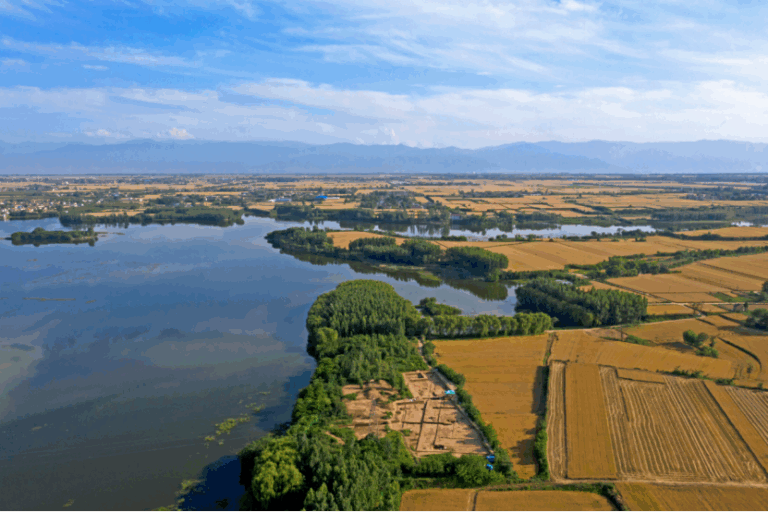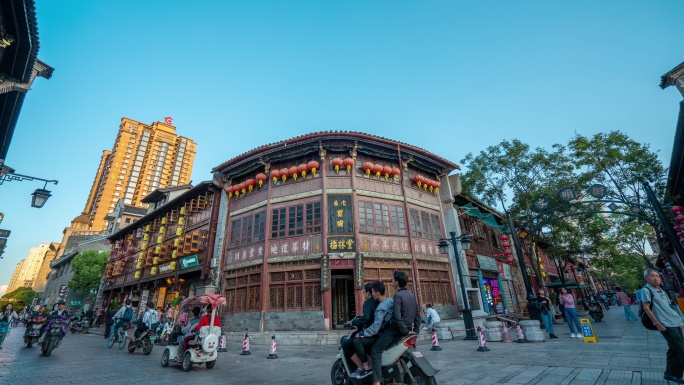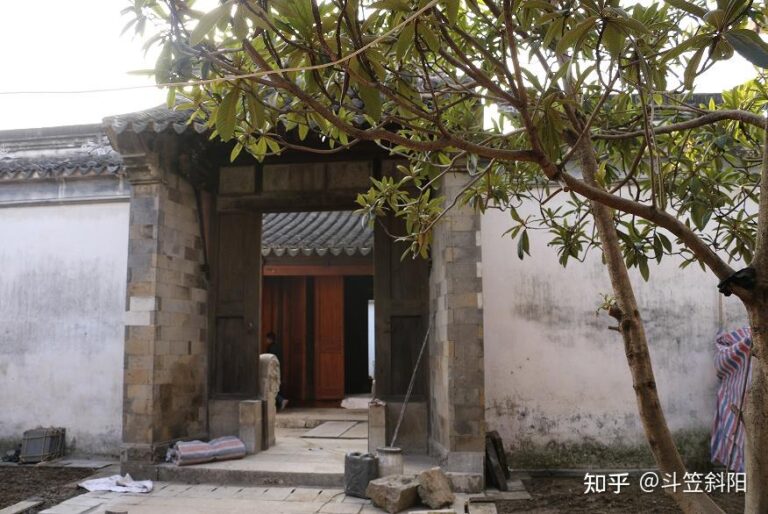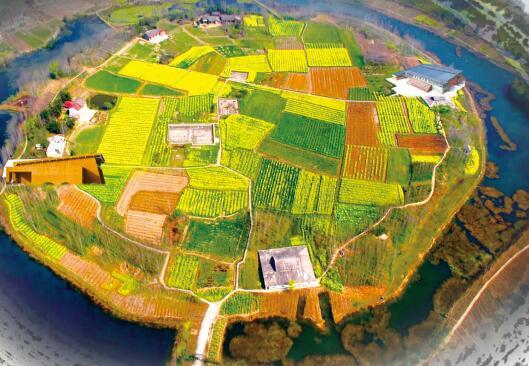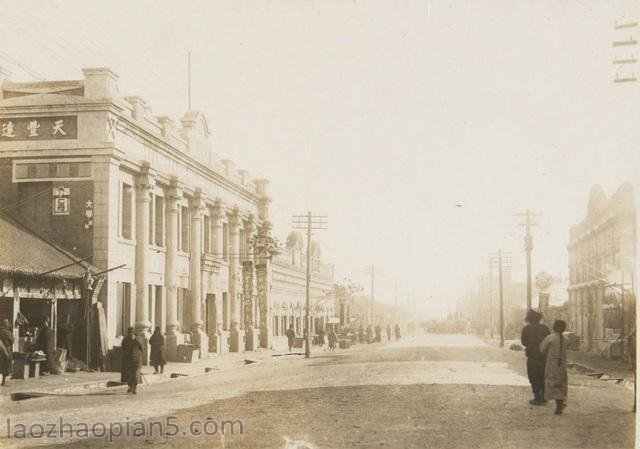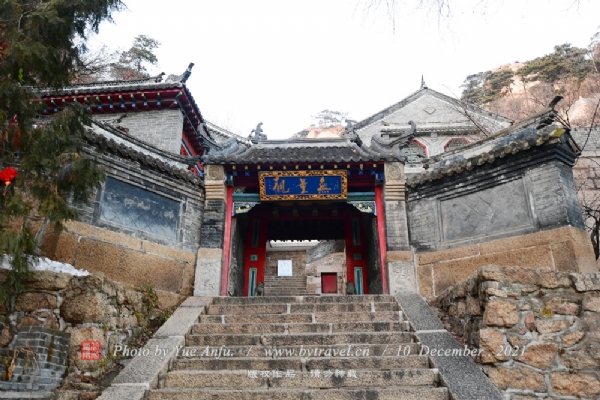Experience the Rich Culture and Beauty of Yueyang Pingjiang Qiyi Jiuzhi
An Essential Guide to Visiting Yueyang Pingjiang Qiyi Jiuzhi
In This Guide
- An Essential Guide to Visiting Yueyang Pingjiang Qiyi Jiuzhi
- The Rich History of Yueyang Pingjiang Qiyi Jiuzhi
- Main Highlights: What to See at Yueyang Pingjiang Qiyi Jiuzhi
- Planning Your Visit: A Practical Guide
- Tickets, Hours, and Booking
- How to Get There
- Local Cuisine and Accommodation
- Frequently Asked Questions
- Final Thoughts on Your Trip
Nestled in the picturesque Pingjiang County of Hunan Province, the Yueyang Pingjiang Qiyi Jiuzhi stands as a poignant testament to China’s revolutionary history. This historical site, formerly known as Tianyue Academy, was the birthplace of the significant Pingjiang Uprising on July 22, 1928, which marked a pivotal moment in the establishment of the People’s Liberation Army. Today, the site is home to the Pingjiang Uprising Memorial Museum, dedicated to preserving the legacy of the brave individuals who fought for justice and change.
Visitors to the memorial are invited to journey through time as they explore a rich collection of artifacts and exhibits that narrate the stirring tale of the uprising. With over 300 items on display, including weaponry and photographs from that era, the museum provides an immersive experience into the sacrifices made by those who sought to forge a new path for their country.
A visit to the Pingjiang Uprising site is more than just a historical excursion; it is an opportunity to reflect on the broader themes of courage, resilience, and the quest for freedom. As you walk through the grounds, you can almost hear the echoes of the past, reminding us of the enduring spirit of those who dared to challenge the status quo. Whether you are a history buff or a curious traveler, this site offers a profound glimpse into China’s revolutionary heritage, set against the backdrop of Hunan’s serene landscapes.
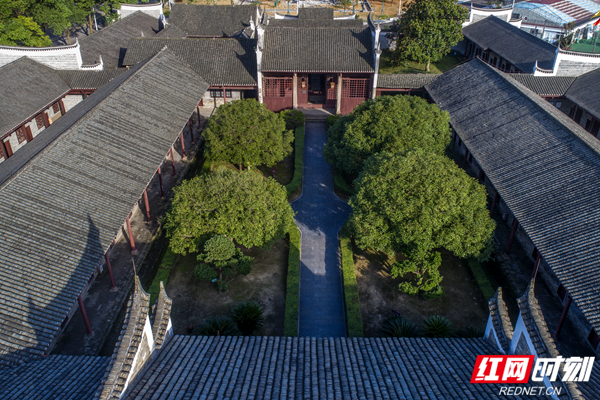
Yueyang Pingjiang Qiyi Jiuzhi.
The Rich History of Yueyang Pingjiang Qiyi Jiuzhi
The Yueyang Pingjiang Qiyi Jiuzhi, or the Former Site of the Pingjiang Uprising, is a significant historical landmark located in Hunan Province, China. This site stands as a testament to the revolutionary spirit of the early 20th century in China, particularly during the tumultuous years leading up to the establishment of the People’s Republic of China.
Originally established as Tianyue Academy in the early Qing Dynasty (1720), the site underwent several transformations. By 1902, it was converted into a primary school, and later, it became the Pingjiang High School after the Xinhai Revolution. Its historical significance surged on July 22, 1928, when key figures such as Peng Dehuai and Teng Daiyuan organized the Pingjiang Uprising here. This uprising marked a pivotal moment in the Chinese Communist Party’s struggle, following earlier revolts in Nanchang and Guangzhou. It was during this event that the Fifth Army of the Chinese Workers’ and Peasants’ Red Army was formed, laying the groundwork for future revolutionary activities in the region.
The site has since been designated as a national key cultural relic protection unit and a patriotic education base. In 1985, the Pingjiang Uprising Memorial Museum was established, preserving the rich history of the uprising and housing over 300 valuable artifacts, including weaponry used by the uprising forces, photographs, and documents. The museum has undergone several renovations and expansions, enhancing its educational role and visitor experience.
Today, the memorial encompasses the former site of the uprising, a statue of Peng Dehuai, and a comprehensive exhibition hall dedicated to the history of the uprising, showcasing the profound impact it had on the formation of the People’s Liberation Army and the broader Chinese revolution. The site not only commemorates the sacrifices made during the uprising but also serves as a reminder of the enduring spirit of struggle and resilience that characterized this period in Chinese history.
Visitors to the memorial can immerse themselves in the stories of heroism and determination that defined the Pingjiang Uprising, making it a vital destination for those interested in China’s revolutionary history. The site is open year-round, inviting individuals from all walks of life to engage with this important chapter of China’s past.
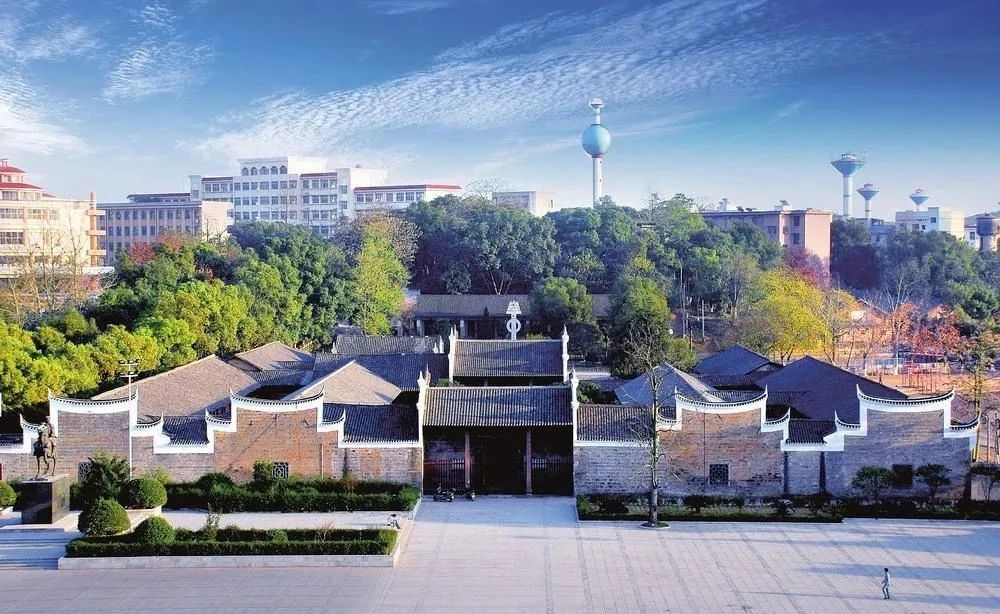
Yueyang Pingjiang Qiyi Jiuzhi.
Main Highlights: What to See at Yueyang Pingjiang Qiyi Jiuzhi
The Yueyang Pingjiang Qiyi Jiuzhi (平江起义旧址) is a remarkable historical site in Hunan Province, China, that offers a profound glimpse into the revolutionary past of the region. This site is not only a testament to the events of the Pingjiang Uprising but also serves as a significant educational resource for those seeking to understand the roots of modern China.
Historical Significance
The memorial complex is located on the grounds of the former Tianyue Academy, which was established during the Qing Dynasty. It was here, on July 22, 1928, that the Pingjiang Uprising was launched under the leadership of notable figures such as Peng Dehuai and Teng Daiyuan. This uprising was a pivotal moment in the establishment of the Chinese Workers’ and Peasants’ Red Army, marking a crucial step in the broader revolutionary movement.
Exhibition Highlights
Visitors to the memorial can explore a variety of exhibits that detail the history and impact of the Pingjiang Uprising. The museum houses over 300 artifacts, including firearms used during the uprising and photographs that chronicle this significant event. The displays are thoughtfully arranged, offering insights into the strategies, struggles, and sacrifices made by those involved in the revolution.
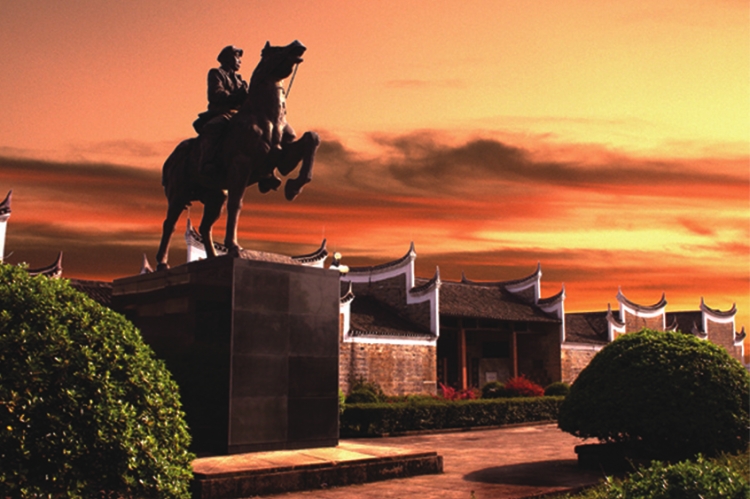
Yueyang Pingjiang Qiyi Jiuzhi.
Architectural Features
The memorial itself is an architectural marvel, spanning approximately 27,000 square meters, with an impressive exhibition area of 8,700 square meters. The layout features a main hall, several exhibition areas, and a statue of Peng Dehuai, enhancing the visitor experience with a blend of historical reverence and modern design.
Educational Value
As a designated national key cultural relic protection unit and a patriotic education demonstration base, the memorial serves as an important venue for learning about China’s revolutionary history. It employs modern exhibition techniques, including audio-visual displays, to bring the stories of the past to life. This educational aspect makes it a perfect destination for students, scholars, and anyone interested in Chinese history.
Visitor Information
The site is open to the public with free admission, making it accessible to all. Operating hours are from 9:00 AM to 5:00 PM, with last entries at 4:30 PM. The memorial is located in Pingjiang County, just a short distance from Yueyang, making it an ideal stop for travelers exploring the region.
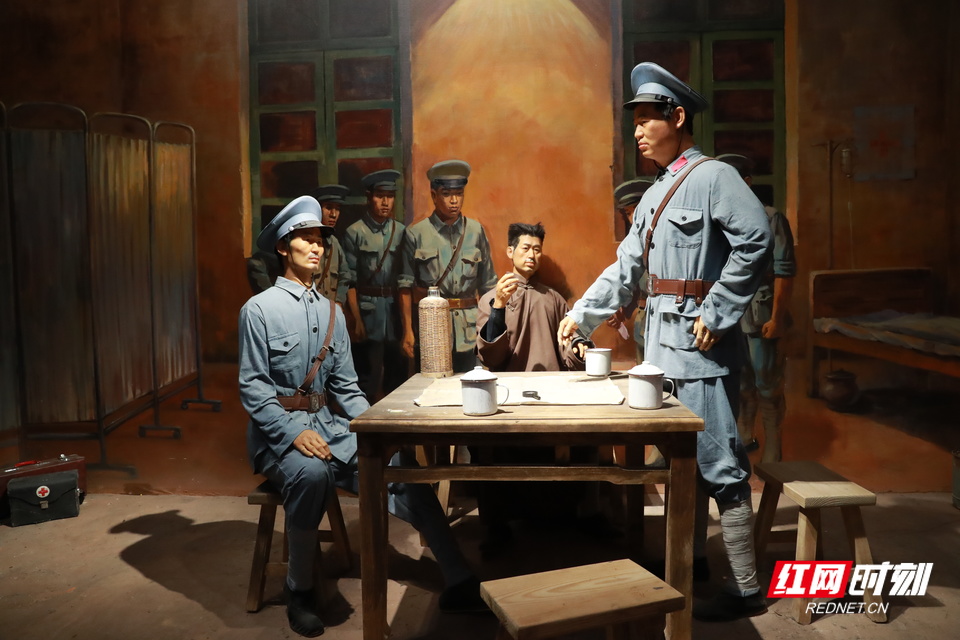
Yueyang Pingjiang Qiyi Jiuzhi.
In conclusion, the Yueyang Pingjiang Qiyi Jiuzhi offers a rich tapestry of history, culture, and education, inviting visitors to reflect on the sacrifices made during China’s revolutionary era and to appreciate the enduring spirit of resilience and change.
Planning Your Visit: A Practical Guide
Practical Guide to Visiting the Yueyang Pingjiang Qiyi Jiuzhi
If you’re planning a trip to the Yueyang Pingjiang Qiyi Jiuzhi (Pingjiang Uprising Memorial Site), here’s everything you need to know to make your visit smooth and enjoyable.
Location and Accessibility
The Pingjiang Uprising Memorial Site is situated in the Pingjiang County of Yueyang City, Hunan Province, approximately 1.5 kilometers east of the county center. The exact address is 338 Dongxing Middle Road, Pingjiang County.
- Getting There:
- By Public Transport: Local buses (routes 2, 4, 6, and 7) connect the county center to the memorial site, making it easy to reach without a car.
- By Car: If you are driving, take the Jinggang’ao Expressway, exit at Pingjiang West, and follow the signs to the memorial. Parking is available on-site.
Opening Hours
The memorial is open from 9:00 AM to 5:00 PM, with the last entry at 4:30 PM. Note that the site is closed on Mondays, so plan your visit accordingly.
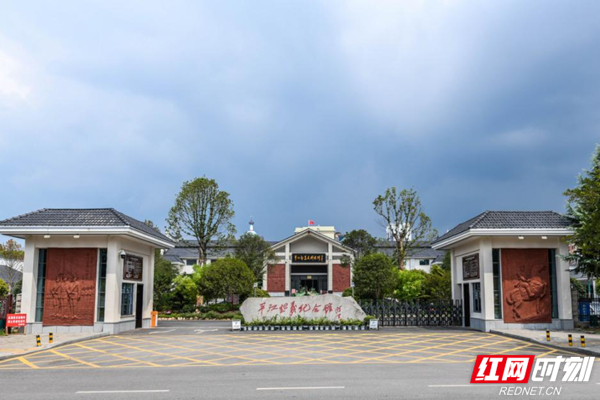
Yueyang Pingjiang Qiyi Jiuzhi.
Admission Fees
Entry to the Pingjiang Uprising Memorial is free of charge, making it a budget-friendly destination for history enthusiasts and families alike.
What to Expect
The memorial site encompasses:
– Historical Exhibits: Explore the rich history of the Pingjiang Uprising, which occurred on July 22, 1928, a pivotal event in the establishment of the Chinese Workers’ and Peasants’ Red Army.
– Artifacts Display: The facility showcases over 300 valuable items, including weaponry used during the uprising, photographs, and documents that narrate the story of this significant historical event.
– Peng Dehuai Statue Square: This area features a bronze statue of General Peng Dehuai, one of the leaders of the uprising, offering a place for reflection and understanding of the sacrifices made.
Tips for Visitors
- Guided Tours: If possible, opt for a guided tour for a more in-depth understanding of the exhibits and the historical context. Knowledgeable guides can provide insights that enhance your experience.
- Photography: Feel free to take photos, but be respectful of the memorial’s solemn nature. Capture the essence of the exhibits and the beautiful surroundings.
- Parking: There is parking available, but it can fill up quickly during weekends and holidays. Arrive early to secure a spot.
- Nearby Attractions: Consider combining your visit with nearby attractions such as Bai Si Village, known for its picturesque landscapes, and Shiniuzhai Scenic Area, which offers stunning natural views and hiking opportunities.
Visitor Facilities
The memorial site is equipped with essential visitor facilities, including:
– Restrooms: Clean facilities are available on-site.
– Information Desk: For inquiries, maps, and guidance, visit the information desk upon arrival.
Best Time to Visit
The memorial can be visited year-round, but spring (March to May) and autumn (September to November) are particularly pleasant, with moderate temperatures and beautiful natural scenery.
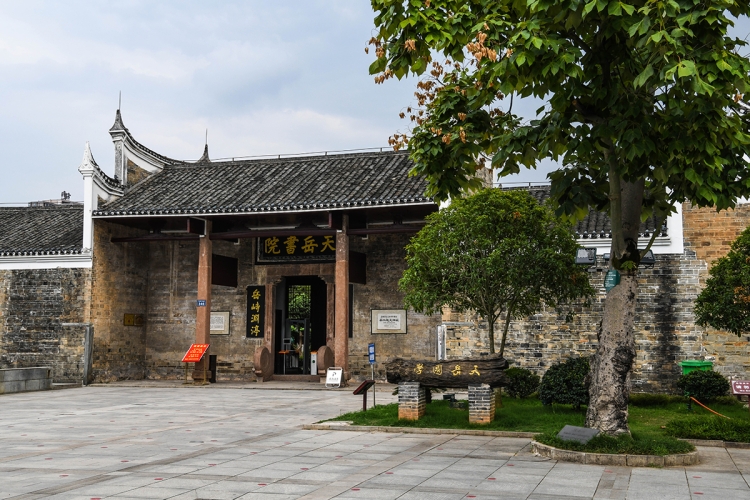
Yueyang Pingjiang Qiyi Jiuzhi.
Conclusion
The Yueyang Pingjiang Qiyi Jiuzhi offers a profound glimpse into China’s revolutionary history and is a must-visit for anyone interested in understanding the region’s cultural heritage. With no admission fee and rich educational value, it’s a perfect stop for travelers exploring Hunan Province.
Tickets, Hours, and Booking
Visiting the Yueyang Pingjiang Qiyi Jiuzhi (平江起义旧址) offers a unique opportunity to delve into a significant chapter of Chinese revolutionary history. The site is officially recognized as a national key cultural heritage site and a patriotic education base, making it an essential visit for history enthusiasts and travelers alike.
Ticket Information
-
Admission Fee: Entry to the Pingjiang Uprising Memorial Museum is free of charge, allowing all visitors to appreciate its historical significance without cost.
-
Opening Hours: The museum welcomes guests daily from 9:00 AM to 5:00 PM. However, please note that the last admission is at 4:30 PM. The museum is closed on Mondays, so plan your visit accordingly.
-
Location: The memorial is situated at 338 Dongxing Middle Road, Pingjiang County, Yueyang City, approximately 1.5 kilometers from the center of Pingjiang.
-
Accessibility: Visitors can easily reach the site via local transportation options, including buses that run frequently to and from the museum.
-
Facilities: The museum features various exhibitions, including artifacts from the uprising, photographs, and historical documents that vividly recount the events of the Pingjiang Uprising on July 22, 1928. It also includes a statue of General Peng Dehuai, a key figure in the uprising.
Visitors are encouraged to take their time exploring the exhibits and to engage with the knowledgeable staff, who can provide deeper insights into the historical context of the memorial. Whether you are a local or an international traveler, the Pingjiang Uprising Memorial Museum offers a profound glimpse into China’s revolutionary past, making it a must-see destination in Yueyang.
How to Get There
Reaching Yueyang Pingjiang Qiyi Jiuzhi (平江起义旧址) involves various transportation options that cater to both domestic and international travelers. Here’s how you can navigate your way to this historical site:
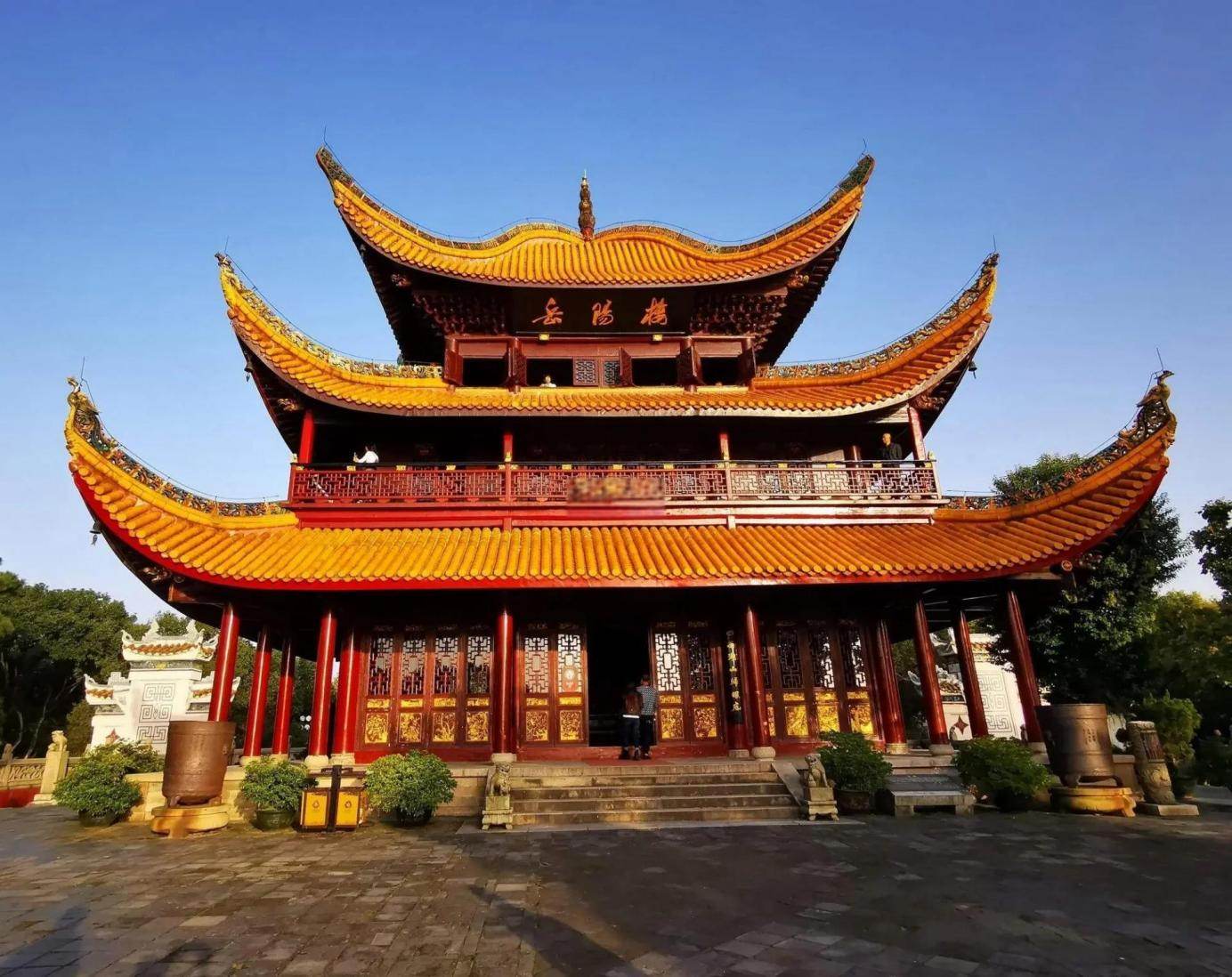
Yueyang Pingjiang Qiyi Jiuzhi.
Getting There
-
By Air:
The nearest major airport is Changsha Huanghua International Airport (CSX), located about 150 kilometers from Pingjiang County. From the airport, you can take a taxi or shuttle bus to the Changsha South Railway Station, where you can catch a high-speed train to Yueyang. -
By Train:
Yueyang Railway Station is well connected with high-speed train services from major cities such as Beijing, Shanghai, and Guangzhou. Once you arrive at Yueyang, you can transfer to a local bus or taxi to reach Pingjiang County, which is approximately 30 kilometers away from the train station. -
By Bus:
Regular bus services operate from various cities in Hunan Province to Pingjiang County. Buses from Yueyang to Pingjiang are frequent and provide a cost-effective and convenient option. The bus station in Yueyang is located near the railway station, making transfers easy. -
By Car:
If you prefer to drive, you can rent a car from major rental services available at the airport or in Yueyang. The journey from Yueyang to Pingjiang takes about 30-40 minutes via the S308 provincial road. The route is well-marked, and driving allows for exploring the scenic countryside at your own pace. -
Public Transportation:
Within Pingjiang County, local buses and taxis are readily available to take you to the Pingjiang Qiyi Jiuzhi. The museum is located approximately 1.5 kilometers from the county center, making it accessible for a short taxi ride or a pleasant walk if you prefer.
Local Transportation Options
-
Bicycles and E-scooters: Renting a bicycle or e-scooter is a great way to explore the area around the memorial site and enjoy the scenic landscapes. Various rental services are available near the Pingjiang Qiyi Jiuzhi.
-
Walking: The area around the memorial is pedestrian-friendly. If you’re staying nearby, walking can be a delightful way to experience local culture and sights.
Tips for Travelers
-
Language: Although many signs are in Chinese, some transportation staff may not speak English. Consider downloading translation apps or carrying a phrasebook.
-
Tickets: For train and bus travel, purchasing tickets in advance, especially during peak travel seasons, is recommended to ensure availability.
-
Plan Ahead: Check the schedules for trains and buses as they may vary by season or day of the week.
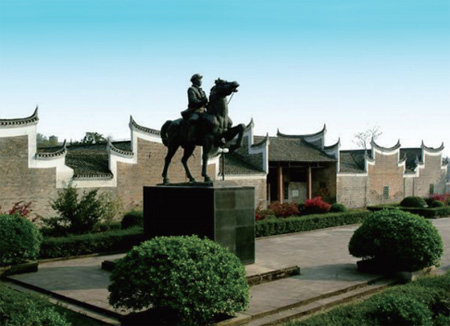
Yueyang Pingjiang Qiyi Jiuzhi.
By utilizing these transportation options, visiting the Pingjiang Qiyi Jiuzhi will be a smooth and enriching experience, allowing you to explore an important part of China’s revolutionary history.
Local Cuisine and Accommodation
When visiting Yueyang’s Pingjiang Qiyi Jiuzhi (平江起义旧址), you can immerse yourself not only in its rich historical context but also in a delightful culinary experience and comfortable accommodations.
Dining Options
1. Local Cuisine:
– Xiang Cuisine: While in Pingjiang, don’t miss out on the local flavors of Hunan cuisine, known for its bold and spicy dishes. Popular choices include Steamed Fish Head with Diced Hot Red Peppers and Spicy Chicken. Many local restaurants offer these specialties, allowing you to savor authentic tastes.
– Street Food: As you explore the area, sample street food such as Stinky Tofu and Spicy Noodles. These dishes provide a quick, delicious introduction to the local palate and are best enjoyed from bustling stalls around the town center.
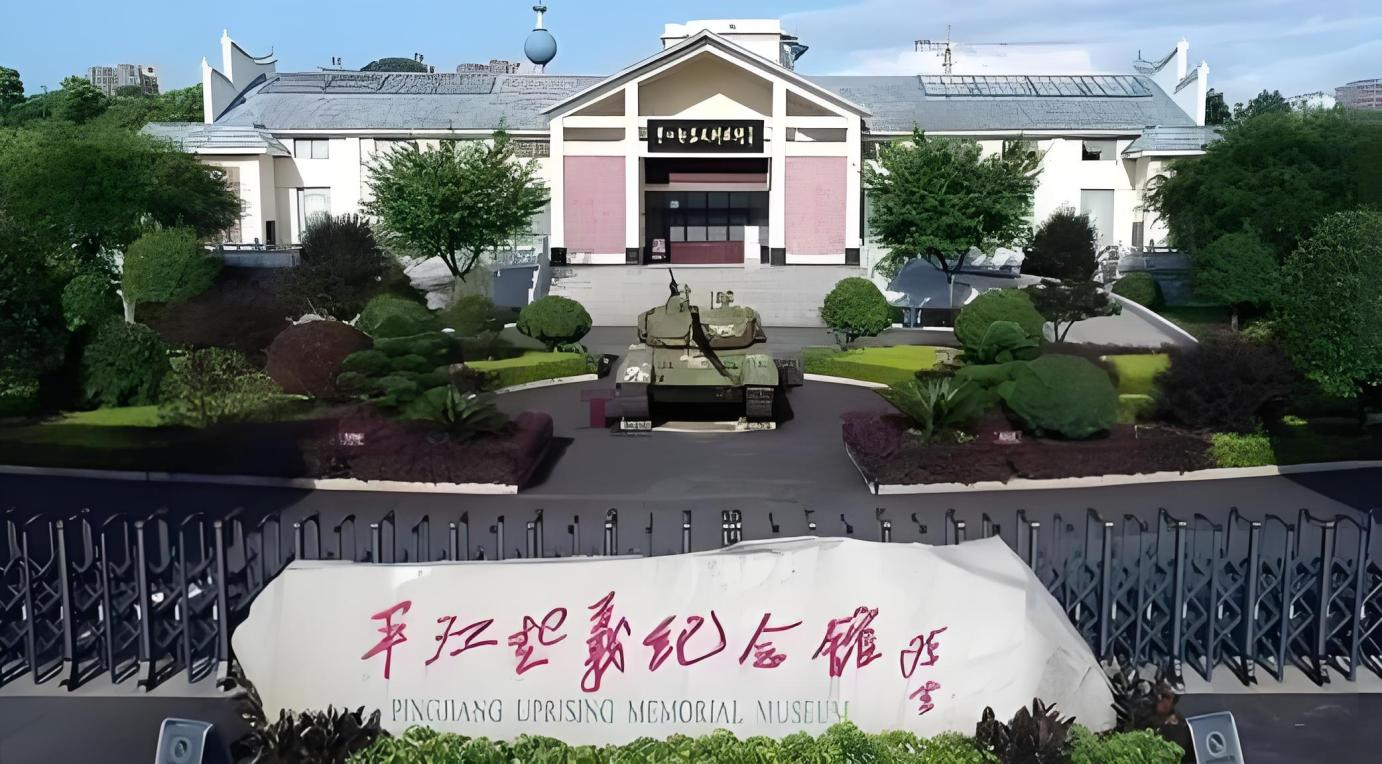
Yueyang Pingjiang Qiyi Jiuzhi.
2. Recommended Restaurants:
– Pingjiang Restaurant: Known for its traditional Hunan dishes and cozy atmosphere, this restaurant is a great place to enjoy a leisurely meal after a day of sightseeing.
– Ding Ding Teahouse: For a lighter option, this teahouse serves a variety of herbal teas and snacks. It’s an excellent spot to relax and recharge, especially if you’re looking to try some local tea varieties.
Accommodation
1. Hotels:
– Yueyang International Hotel: Situated conveniently near the Pingjiang Qiyi Jiuzhi, this hotel offers comfortable rooms with modern amenities and a restaurant serving both local and international cuisine. It’s ideal for travelers seeking a convenient and comfortable stay.
– Hunan Pingjiang Hotel: This hotel provides a blend of comfort and local charm. With spacious rooms and friendly service, it’s a good choice for families and groups looking for a home away from home.
2. Guesthouses:
– Jiahe Guesthouse: For a more intimate experience, consider staying at this guesthouse, which offers cozy accommodations and personalized service. The owners often provide insights into local attractions and dining options, enhancing your overall experience.
– Bai Si Village Homestay: Located a short distance from the main attractions, this homestay offers a unique experience to interact with local families and enjoy homemade meals, giving you a taste of authentic rural life.
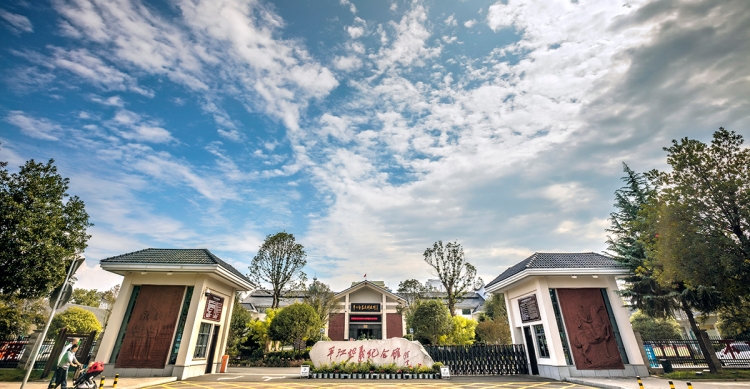
Yueyang Pingjiang Qiyi Jiuzhi.
3. Booking Tips:
– It’s advisable to book your accommodations in advance, especially during peak vacation seasons, to ensure availability and secure the best rates.
– Check for hotels that offer complimentary breakfast or local tours as part of your stay, making your travel experience even more enjoyable.
Whether you’re savoring the spicy delights of Hunan cuisine or resting in a comfortable hotel after exploring the historic sites, your visit to Pingjiang will be both enriching and satisfying.
Frequently Asked Questions
Frequently Asked Questions
1. What is Yueyang Pingjiang Qiyi Jiuzhi?
Yueyang Pingjiang Qiyi Jiuzhi, also known as the Pingjiang Uprising Memorial Museum, is a historical site located in Hunan Province, China. It commemorates the Pingjiang Uprising, a significant event in the history of the Chinese Communist Party that took place on July 22, 1928.
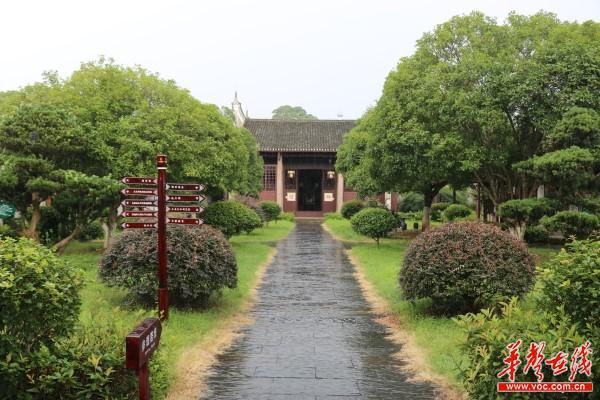
Yueyang Pingjiang Qiyi Jiuzhi.
2. Where is the memorial located?
The memorial is situated in the Pingjiang County Development Zone, approximately 1.5 kilometers east of downtown Pingjiang. The address is 338 Dongxing Middle Road, Pingjiang County, Yueyang City, Hunan Province.
3. What are the opening hours?
The memorial is open to visitors from 9:00 AM to 5:00 PM, with the last entry at 4:30 PM. It is closed on Mondays.
4. Is there an admission fee?
No, entrance to the Yueyang Pingjiang Qiyi Jiuzhi is free of charge, making it an accessible destination for those interested in learning about this important historical event.
5. What can I see at the memorial?
Visitors can explore various exhibitions showcasing artifacts and documents related to the Pingjiang Uprising, including weapons used during the uprising, photographs, and historical displays that narrate the events leading to the establishment of the Chinese Workers’ and Peasants’ Red Army’s Fifth Army.
6. How can I get to the memorial?
The site is easily accessible by public transport or car. Buses 2, 4, 6, and 7 run from downtown Pingjiang to the memorial. For those driving, it can be reached via the Jinggang’ao Expressway, taking the Pingjiang West Exit.
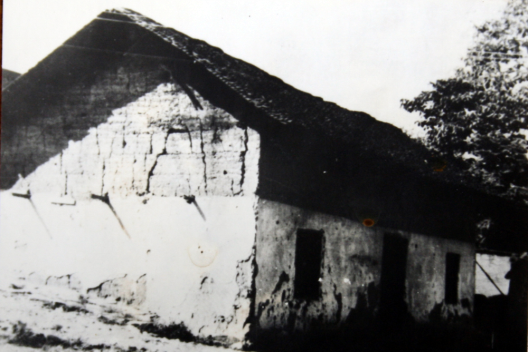
Yueyang Pingjiang Qiyi Jiuzhi.
7. Are there any guided tours available?
Yes, guided tours are available and often recommended, as they provide in-depth information and context about the exhibits and the significance of the uprising. It is advisable to inquire at the memorial for details on availability and booking.
8. What other attractions are nearby?
In addition to the memorial, visitors can explore other local attractions such as the beautiful Baici Village, the scenic Stone Cow Mountain area, and the famous Yueyang Tower, which offers stunning views of Dongting Lake.
Final Thoughts on Your Trip
Visiting the Yueyang Pingjiang Qiyi Jiuzhi (平江起义旧址) is not just a journey through history; it’s an opportunity to connect with the rich tapestry of China’s revolutionary past. This site stands as a testament to the courage and determination that fueled the 1928 Pingjiang Uprising, a pivotal moment in the formation of the Chinese Red Army. As you walk through the memorial hall and explore the exhibits filled with artifacts and stories of bravery, you’ll gain a profound understanding of the sacrifices made for freedom and justice.
Engaging with this heritage site encourages reflection on the values of resilience and unity—qualities that resonate strongly in today’s world. Whether you’re a history enthusiast or a curious traveler, the Pingjiang Uprising Memorial offers an enriching experience that invites you to ponder the past while inspiring hope for the future. So, as you plan your visit, remember that each step taken here is a step towards honoring those who dared to fight for a better tomorrow. Embrace the spirit of the past, and let it guide your journey through the present.
